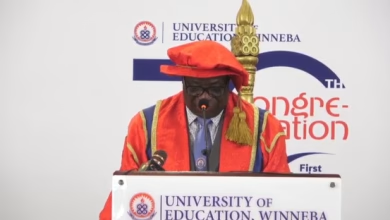Mahama Ayariga Requests Full Financial Breakdown for DRIP

- Ayariga demands detailed information on the procurement costs for equipment associated with the DRIP
- He is asking for the payment schedule related to the DRIP equipment
- The DRIP was inaugurated by President Nana Addo Dankwa Akufo-Addo
Mahama Ayariga, the Member of Parliament for Bawku Central, has formally requested information from the District Assembly Common Fund (DACF) regarding the District Road Improvement Programme (DRIP).
His Right to Information (RTI) request demands a detailed account of the costs associated with the DRIP, including the payment schedule for equipment and the total payments made to date.
In his letter, Ayariga, acting on instructions from Dr. Cassiel Ato Forson, Leader of the National Democratic Congress (NDC) caucus, has requested specifics on the procurement costs for each unit of equipment involved in the DRIP, which was launched on Wednesday, July 31, 2024.
President Nana Addo Dankwa Akufo-Addo inaugurated the DRIP at the Black Star Square, unveiling a significant array of equipment aimed at enhancing Ghana’s road infrastructure. This initiative is part of the government’s strategy to decentralize development and improve local road networks.
President Akufo-Addo emphasized the program’s potential to boost economic growth and social development by improving access to trade, education, and healthcare. He announced the commissioning of 2,240 pieces of equipment, including motor graders, backhoes, and tipper trucks, to support road maintenance and rehabilitation efforts.
The DRIP will be managed by a four-member committee in each Metropolitan, Municipal, and District Assembly (MMDA), ensuring adherence to high standards and effective implementation. The President also highlighted the job creation potential of the initiative, projecting the creation of 10,000 jobs in various technical fields.
Despite the progress made since 2017, with 12,830 kilometers of roads completed under his administration, President Akufo-Addo acknowledged the need for continued improvements. He urged local authorities to follow the operational guidelines and emphasized the importance of maintaining local road networks to support economic development.
The DRIP represents a major step forward in enhancing Ghana’s road infrastructure, promising improved connectivity and economic opportunities across the country.






